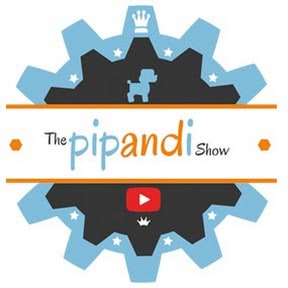The blood, the sweat, the tears: after countless hours laboring over syntax and finessing your message, you’ve finally done it. You’ve finished your first eBook. While once, a budding writer would have to send out pitch letters and sample chapters to many publishing houses in the desperate hopes that someone would want to publish the book, today, that’s no longer the case.
You can now cut the middleman out entirely and publish online. With iPads, Kindles, and other tablets and e-readers dominating the technological landscape, people are more likely now than ever before to pick up a device and read instead of turn through the pages of a physical book.
Publishing may be a piece of cake, but your work isn’t done yet. Whether you’ve written the next best-selling hot thriller or a helpful guide on link-building and SEO, you must market your content.
 Normally, if you did get a contract with a publishing house, you’d have a publicist who would take care of the marketing stuff for you. However, just because you don’t have your own publicist doesn’t mean marketing your book is an impossible task. Just as writing an eBook is simpler than ever today, so too is eBook marketing. You have more means of marketing at your disposal than you may even realize. Just check out these 14 book promotion tactics.
Normally, if you did get a contract with a publishing house, you’d have a publicist who would take care of the marketing stuff for you. However, just because you don’t have your own publicist doesn’t mean marketing your book is an impossible task. Just as writing an eBook is simpler than ever today, so too is eBook marketing. You have more means of marketing at your disposal than you may even realize. Just check out these 14 book promotion tactics.
# 1. Social media
Today, the public uses social media for a lot: catching up with friends and family, reading the latest news, and getting recommendations from their pals. After you finish writing your book, your first inclination is likely to post on Facebook or send out a celebratory tweet on Twitter letting your friends and family know of your accomplishment. You may also ask them to share a link to your book.
That’s a good start, but your social media marketing efforts can go so much further. Set up a Facebook business page for your book. Make a professional Twitter handle. Create a YouTube profile and upload videos related to your book. Cross-promote these posts. Be careful to avoid bombarding your followers with too much content, though. Instead, naturally encourage them to invite their friends to like or follow your page.
# 2. Internet Advertisements
To create effective advertisements, you must know your audience. If you’re advertising on social media, sites like Facebook have analytics where you can dig into more info about who has liked your page. Understanding more about your customers, such as their age, location, and behavior makes it easier to create targeted advertisements that will make them more likely to click and buy your book.
Social media sites such as Facebook have made it easier than ever to create a variety of ads that users will see as they scroll through their newsfeed. You could even potentially make money when someone clicks on your ad. Of course, feel free to take your advertising to other sites as well.
# 3. Word of Mouth
In today’s age, where everything is done via the Internet, word of mouth is often underestimated and underutilized. People would rather encourage their social circle to share content on Facebook or Twitter than do so face-to-face.
Yet as word of mouth has become less common, its effectiveness has increased. Think about it: how often are you bombarded with ads and suggestions from friends as you scroll through social media? Probably often. After a while, all those suggestions become nothing more than white noise.
However, if you’re hanging out with a friend and they suggest something to you, you may be more willing to think it over because you’re not being overwhelmed by other ads pulling for your attention. Word of mouth may not be your primary marketing tactic, but it’s one worth trying. You’d be surprised how many people your social circle can reach with a little good ol’-fashioned conversation.
# 4. Your Own Website and Blog
Social media is great, but as an author trying to promote a book, your customers are going to expect you to have a website, too. The most important facet of your website is the landing page. This is where you’ll include a link to your ecommerce store where people can buy your book.
How do you get people to see your landing page without relentlessly posting the link on social media? By starting your own blog, of course. You’re a gifted writer, or you wouldn’t have written a whole book. Now you can show off your writing savvy regularly with a blog.
Not sure what to write about? Just look at the topic of your book for inspiration. If your eBook is about saving money, for example, you should start a financial blog.
A blog benefits you in a few ways. First, it makes you an even more renowned expert in your field (in the above example, personal finance). Secondly, it gives you the opportunity to drop in links to your landing page in your posts, leading to more site traffic. Lastly, it gives you fresh content to post to your social media profiles, which again can lead to more traffic.
# 5. Webinars
If you’ve written a book about a specific topic, you must know a lot about that topic. Wouldn’t it be nice to spread the knowledge by hosting a webinar? These online lessons are quite useful for marketing your eBook. They attract an audience that you may have otherwise missed. Since that audience is already interested in your topic, that makes them more likely to buy your book after seeing your webinar.
There are lots of ways to do a webinar. These can be free or you can charge for them. You can use GoToWebinar, Skype, or Google+ Hangouts. You can do a webinar once or repeat it for max impact. It’s all up to you and what works best for your audience.
# 6. Email Newsletters
After using social media, webinars, ads, or any combination of the above to attract customers, how do you keep them interested? After all, if you decide to write another eBook, this is the audience you would appeal to first. How do you prevent them from getting bored?
Email newsletters keep your customers in the loop, even when you don’t have a project currently planned. Before you worry about your newsletter content though, you need subscribers. Create a subscriber signup sheet on your website. Encourage your blog readers to subscribe. Remind your webinar attendees and your social media audience to subscribe as well.
There are many automated email marketing services that can save you a lot of manual work. However, you still have to provide the content for your newsletters. Send these out monthly or bimonthly. Let your readers know what you have planned, such as webinars, interesting blog posts, virtual book tours (more on these later), and even another book in the works. Give them early access to content and they may just become repeat customers.
# 7. Reviews
Whether you publish your eBook through Amazon Kindle Direct Publishing, Booktango, or BookBaby, your readers are going to write reviews. They’ll often rate the book between one and five stars, with five being the best rating possible. They can leave their full name, just a first name, or even go by a pseudonym.
At first, reviews can be scary. After all, you never know what your readers are going to say, and if enough of them are critical, it may turn off would-be customers, right? Not necessarily. Customers expect any product to have a mix of good and bad reviews. If a product has nothing but glaringly positive reviews, it seems fishy. You should only worry if the negative reviews outnumber the positive ones.
Reviews allow your customers to see an unfiltered, honest opinion of what other readers thought of the book. Sometimes that’s more effective than any marketing campaign.
#8. Freebies and Discounts
If you’re trying to make money off your eBook, giving it away for free may seem counterintuitive. Luckily, you don’t have to do that.
If you’ve ever gone to the mall and visited the food court, you may have been offered a free food sample from a nearby restaurant eager for your business. Your freebies can be like that: just a little taste, such as a few pages or a short chapter, of what’s to come if a customer buys.
You may want to offer discounts at certain times, like around the holidays, to drum up business. You may also give customers coupons for subscribing to your newsletter, liking your Facebook page, or even recommending other customers.
# 9. Virtual Book Tours
If you published your book using traditional channels, your publicist would schedule a book tour to promote your book. A book tour is a great way to get yourself out there, but only for the people in the cities in which you visit. Why exclude anyone when you can do a virtual book tour instead?
A virtual book tour allows you to reach far more people, which could build your audience even more. During this tour, you may have your book reviewed and do a few interviews with influencers. These influencers should be big names in your field.
Most virtual book tours last about a week. Treat this tour as you would a real book tour. Publish the dates in which each event is happening. Live stream events when possible.
# 10. Book Promotion Sites
Did you know there are websites out there that exist specifically to promote books? There are indeed, and your book can be on the list. How?
When choosing a book promotion site, it pays to do your research. Not all these sites will list your book for free. Others require you to pay more for more exposure.
Besides that, many book promotion sites have rules about the types of books they’ll promote. Some sites may only want books of a certain genre. Some may need you to pitch your book a month in advance. Some may only feature your book for a week. While these sites can be a great and sometimes cheap promotional tool, do your homework before you sign up.
# 11. Guest Posts
No matter what you chose to write your book about, there are other writers out there in the same field. Instead of thinking of them as competition, form a mutually beneficial partnership through guest posting.
By guest posting on another site, you’re being introduced to a brand new audience who might not be aware of you and what you do. You’re also, as with a few of our other tactics, proving you’re an expert in the field. Lastly, you get a useful inbound link to share with your social media followers and blog readers. Just make sure you return the favor and let the other writer post on your site.
# 12. A Solid CTA
Regardless of whether you’re writing a post on your blog or someone else’s, you must end each post with a strong call to action or CTA. What is a CTA, you ask? It’s just as it sounds like: a paragraph that entices the reader to buy a product, which in this case is your eBook.
However, there’s a right way and a wrong way to craft a CTA. You want to avoid being too salesy. Demanding too much of the reader is also not a good idea. Instead, think about the reader and their wants and needs. How can they benefit from your eBook? What will they learn? Highlight this information and your CTAs are more likely to be successful.
#13. Pop-Up Optimization
By pop-ups, we don’t mean those annoying ads that try to get you to find singles online or gamble from the comfort of your home. Pop-up optimization is different. Also known as opt-in pop-ups, these are targeted ads that pop up as you’re scrolling through a blog post. These are often used to get subscribers. Once a customer signs up, they’ll receive access to a treasure trove of webinars, a free book, or discounted content.
There’s a reason you see these optimized pop-ups on so many popular sites and blogs: they work. Of course, some customers may just click the little X button as soon as they see an opt-in pop-up, but that doesn’t always happen. Some marketers have seen massive success from pop-up optimization, such as thousands of extra subscribers over a 12-month period just from these pop-ups alone.
#14. Contests
People love free stuff. They also love winning. Why not combine the two and have a contest? This is a bit of an interesting promotional method, because although you want customers to buy your book, you’re not actually offering your book as the prize. You might think that defeats the purpose, but it doesn’t.
Think about how a would-be customer would feel about winning a book. That’s a pretty cool prize, but is it as cool as a free e-reader like a Kindle Fire? No. What if the winner received the book and the Kindle Fire? That’s even better. The bigger the prize, the more people will want to win it. To win, they have to play. To play, they have to subscribe.
To get the most amount of people involved, have the contest for a week or two. That gives all interested participants the chance to sign up. You may choose to give away only one grand prize or maybe even second or third prizes. In the end though, you’re the real winner because you now have a great list of leads you can go through.
Takeaways
Overall, regardless of the topic, you’ve written an eBook you’re proud of. You want the world to read it, and you really believe it could help people (or at least entertain them). Luckily, you have a lot of marketing options. You can rely on word of mouth, which is still a tried and true method. Social media is incredibly reliable for spreading the word about your book.
You also need a solid website with a blog you regularly update. The CTAs or calls to action at the end of each post can drive up reader traffic. Share your expertise with webinars and blog posts. Advertise, advertise, advertise, but make sure you’re appealing to the right audience. Don’t shy away from customer reviews either.
With so many marketing options at your fingertips, you can get your book out there, even if you have a relatively small budget to work with.
[author title="About the Author" style="font-family:lato;"]






